Search Results
Showing results 161 to 180 of 742

Chemistry Cake
Source Institutions
In this exciting and tasty chemistry activity which requires adult supervision, learners explore how chemistry affects a simple everyday activity like cooking.
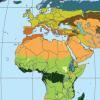
Discovering Rainforest Locations
Source Institutions
In this activity, learners will examine various world data maps to combine the information and predict which areas could be tropical rainforests.

Balloon Hovercraft
Source Institutions
In this activity (on page 2 of the PDF under GPS: Luge Activity), learners will construct a model hovercraft out of an empty spool and a piece of cardboard.
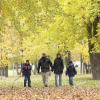
Scavenger Hunt
Source Institutions
An outdoor scavenger hunt helps learners consider the theme of "What Is Life?" Learners explore what living organisms are, including how organisms meet basic needs of food, shelter and water to surviv
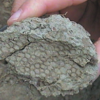
What is a Fossil?
Source Institutions
In this activity about dinosaurs, learners explore how and why fossils form. First, learners are introduced to dinosaur fossils by reading the book "Bones, Bones, Dinosaur Bones" by Byron Barton.

Antigen-Antibody Testing: A Visual Simulation or Virtual Reality
Source Institutions
In this biology activity, learners use plastic pipettes to cut wells into the solid gel layer of agar in petri dishes and place solutions of simulated antigen and antibody preparations into the wells.
The Earth's Timeline
Source Institutions
In this group activity, learners will mark important developments of life on Earth on a timeline (each foot in length representing 200 million years).
Soaring Towers: Building with Recycled Materials
Source Institutions
In this activity, learners will build the highest tower they can out of recycled materials.
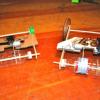
Bottle Cars
Source Institutions
In this activity, learners explore motion, energy, and electricity by constructing bottle cars that run on motors.
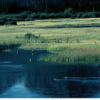
Wetlands
Source Institutions
Learners create a model of a wetland to observe how it absorbs and filters water from the environment.

See the Light
Source Institutions
In this three-part activity, learners conduct simple experiments to see how light refracts and reflects, and how colors of light affect what we see.

Inside DNA
Source Institutions
In this activity (on pages 34-39), learners make a fairly detailed model of DNA using licorice and gumdrops.
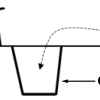
Hunting Minibeasts
Source Institutions
In this activity (p.6-10 of PDF), learners use different methods for hunting minibeasts (bugs). Learners can either make traps or simply look for minibeasts under stones and logs.

Variation Game
Source Institutions
In this set of outdoor games, learners play the role of monkeys that are trying to get enough resources (food, shelter, and space) to survive.

Count the Dots: Binary Numbers
Source Institutions
Data in computers is stored and transmitted as a series of zeros and ones. Learners explore how to represent numbers using just these two symbols, through a binary system of cards.

Molecules in Motion
Source Institutions
In this activity, learners add food coloring to hot and cold water to see whether heating or cooling affects the speed of water molecules.
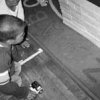
Designing a Wall
Source Institutions
In this engineering activity (page 5 of PDF), young learners investigate how materials and design contribute to the strength of a structure, particularly walls.

Making Connections: What You Can Do To Help Stop Global Climate Change
Source Institutions
In this cooperative learning activity, learners visit ten stations and are challenged to think critically about various conservation questions and issues.

Web It!
Source Institutions
In this outdoor activity, learners investigate spider webs and feeding behavior, particularly how spiders trap food in their sticky silk webs while not getting stuck themselves.
Light on Other Planets
Source Institutions
In this math-based activity, learners model the intensity of light at various distances from a light source, and understand how astronomers measure the amount of sunlight that hits our planet and othe
